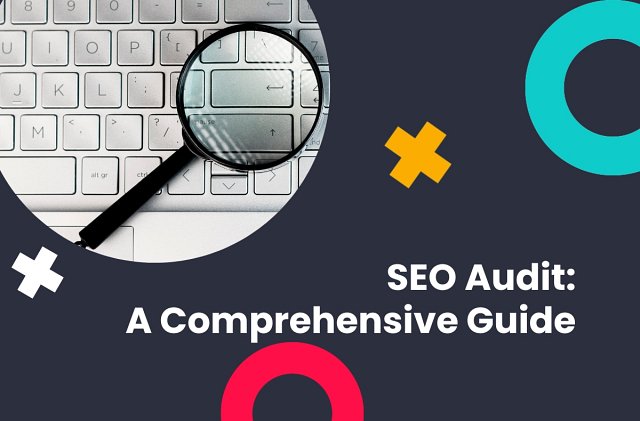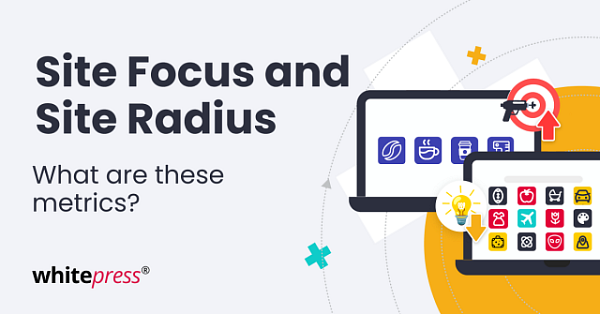(14 min. read)

What is an SEO Audit?
An SEO audit is a detailed analysis of a website’s performance in relation to Search Engine Optimization (SEO). It involves a thorough examination of various elements of your site that influence its ranking on search engine results pages, including technical factors, on-page elements, content quality, user experience, and off-page signals.
SEO audits are performed to identify any weaknesses or issues that may be preventing a website from achieving its full potential in terms of ranking. This allows you to pinpoint specific areas that need improvement, whether it’s fixing broken links, optimizing meta tags, improving page load speeds, or enhancing performance on mobile platforms.
Why are SEO Audits Important?
Without performing an SEO audit, it’s difficult to gauge the full performance of your digital marketing strategies. Regular audits are important to ensure you stay aligned with the latest changes in search engine algorithms and user expectations - what worked a year ago might not be effective anymore.
These audits can help evaluate your content’s effectiveness in terms of keyword targeting, readability, or relevance, and provide actionable insights on improving user experience. A comprehensive SEO audit covers all search-related aspects of your website, from content to your backlink profile, along with insights into what your competitors are doing right and where they may be falling short, leaving the open field for you.
Benefits of Regular SEO Audits
An SEO audit shouldn’t just be a one-time activity - it’s a continuous process that offers numerous long-term benefits for your site performance, visibility, and overall digital marketing success. By consistently evaluating and refining your SEO strategy through regular audits, you can ensure that your website remains competitive in a rapidly digitizing industry.
Regular audits aid in detecting technical issues that can develop over time, like broken links, slow loading speeds, crawlability and indexing issues, etc. Crawlability refers to a search engine's ability to access and navigate a website's content, while indexing is the process of storing and organizing this content in the search engine's database to make it searchable by users. These issues can prevent search engines from properly accessing and ranking your content, resulting in lower search rankings. An SEO audit, however, can help you uncover and address them properly.
To prevent these SEO issues from developing unnoticed, SEO audits must be performed regularly. When used as a preventive measure, they allow you to detect and fix problems early, before they have time to escalate into more serious issues. This approach keeps your website in good health and helps avoid sudden drops in rankings due to issues. Regular SEO audits can also lead to better resource allocation in digital marketing efforts by identifying which strategies and tactics are most effective in driving traffic and conversions.
A well-optimized website that consistently ranks high in search engine results contributes to a stronger online presence and brand authority. Audits help you maintain this presence, making sure that your site remains visible and authoritative in your industry, and that your content stays relevant and valuable to your viewers. This, in turn, not only increases your visitor flow but also assists in building trust and credibility with your audience.
SEO audits also help identify new keyword opportunities or content gaps by analyzing current website performance and uncovering underperforming pages. This highlights keywords your site may be underutilizing and areas where content is lacking. They track key performance indicators (KPIs) by continuously monitoring a website’s health, performance, and search engine rankings, and make it easier to improve them by providing practical insights.
Key Components of an SEO Audit
As we already mentioned, an effective SEO audit is comprehensive, meaning it covers multiple facets of your website’s performance. For a more in-depth analysis, the audit is divided into three primary areas that form the foundation of SEO: technical factors, on-page SEO, and off-page SEO.
Technical SEO Analysis
Without a solid technical foundation, even the best content may struggle to yield results. An analysis of your website’s structure and backend elements is performed as part of a complete SEO audit, verifying your site’s ability to be discovered, crawled, and indexed by search engines. HTTPS should also be implemented as Google prioritizes secure sites in its rankings.
A well-organized site structure and clean URL hierarchy make it easier for search engines to crawl your website and understand its content. During an audit, you’ll assess the logical flow of your site’s architecture, ensuring your URLs are descriptive, concise, and free of unnecessary parameters that might cause issues.
Speed and mobile-friendliness are both significant ranking factors as well. Slow-loading pages can lead to higher bounce rates and lower rankings, and mobile performance is an increasingly important factor for Google’s algorithms. An audit can help identify areas where performance improvements are needed and suggest next steps to take.
On-Page SEO Evaluation
On-page SEO focuses on optimizing individual pages (and their content) to rank higher in searches and earn more relevant traffic. Keyword research and optimization is a major part of this process, along with optimizing header tags (H1, H2, H3, etc.), title tags, and meta descriptions for higher click-through rates.
During an SEO site audit, you’ll evaluate keyword placement, density, and relevance, ensuring each page is optimized for the right terms without keyword stuffing. You’ll also verify whether your meta elements are unique and effective in compelling users to click.
Content quality is essential to on-page SEO and a site audit aims to assess its depth and usefulness for the target audience, helping you make sure it aligns with search intent. This includes checking for duplicate content, keeping a consistent content structure, and evaluating your internal linking practices, which assists in effective indexing and improving user experience.
Off-Page SEO Assessment
All actions taken outside your website to impact your rankings within search engine results fall under the off-page SEO category. They are often related to building your website's reputation and authority on the web, including your backlink profile, brand mentions, competitor analysis, local SEO (Google Business Profile optimization), content marketing strategies, digital PR, etc.
Backlinks remain one of the most important ranking factors in SEO, and a thorough site audit should evaluate their quality, quantity, and relevance. During the process, any toxic or spammy links should be identified and disavowed to avoid harming your rankings, and new opportunities for high-quality backlinks should be considered. Disavowing links is the process of telling search engines to ignore specific backlinks that are harmful or low-quality and can be done through the Google Search Console. Remember, the quality of your backlinks is more important than their quantity, so aim for authoritative sites with relevance to your field instead of sheer numbers.
Although social media signals may not directly impact rankings, they can also contribute to a stronger online presence. As users share and engage with your content, your brand visibility increases, driving traffic to your site organically. The site audit should review how your content is shared and discussed across social platforms, and how well you’re leveraging these channels to support your SEO efforts.
Tools for Conducting an SEO Audit
Conducting a detailed SEO audit requires the right set of tools, which will help you analyze different aspects of your website. They uncover issues, gather data, and develop actionable insights based on your current SEO performance.
One of the most indispensable SEO audit tools is Google Search Console. It provides valuable insights into your website’s performance in Google search results and highlights critical issues that require attention. With Google Search Console, you can see which queries are bringing traffic to your site, submit your XML sitemap for efficient indexing, analyze overall search performance, and identify problems with site speed and mobile usability.
A tool complementary to the Google Search Console is Google Analytics, which can be integrated with the GSC for more comprehensive insights and allows you to dive deep into user behavior, traffic sources, and the overall performance of your site. This includes real-time reports on key performance metrics of your website and accurate conversion tracking, providing useful data for any digital strategy. It's a free SEO audit tool widely used by professionals.
Online SEO platforms and tools like Ahrefs or SEMrush are known for their extensive backlink analysis and keyword research, and feature site auditing features of their own — though some of them might require a paid subscription to unlock (limited free versions or trials often available). They make it easier to identify both content and backlink opportunities, track your positioning for specific keywords against competitors, and help identify technical SEO issues that might affect your site. Screaming Frog SEO Spider and Moz Pro are other popular site auditing tools.
In addition to paid SEO tools, there are free alternatives available for wider audiences as well, such as Ubersuggest — a free keyword research tool (free to some extent) — or Yoast SEO, a popular SEO plugin for WordPress sites.
While these free tools offer valuable insights, it's crucial to understand how to interpret the data they provide, as effective SEO relies not just on access to data but on the ability to analyze trends, identify issues, and implement informed strategies that align with your website's goals.
Step-by-Step Guide to Performing an SEO Audit
Step 1: Define Your Audit Objectives
Before diving into the site audit, it’s crucial to establish clear objectives. Are you focusing on improving technical SEO, enhancing on-page optimization, or expanding your backlink profile? Defining your goals will help you stay focused and prioritize areas that will have the most significant impact on your SEO performance.
Step 2: Start with Technical SEO
Starting from the ground up, the first actual step is to verify that the technical foundation of your website is solid. Use tools like Screaming Frog or Sitebulb to crawl your website in search of broken links, duplicate content, crawl errors, and other issues.
The Google Search Console will help you verify indexing, while tools like Google PageSpeed Insights assess your website’s load times and other Core Web Vitals.
Step 3: Perform On-Page Checks
Start the on-page optimizations with a thorough review of the keywords you are targeting on each page. Make sure they are relevant and strategically placed in titles, headings, and throughout the content, and that there is no over-optimization. "Over-optimization" in SEO refers to the practice of excessively optimizing a website or its content in a way that becomes unnatural or manipulative, leading to potential penalties from search engines.
Check your title tags and meta descriptions, content structure, internal linking, and image optimization (alt text, file names, compression, etc.).
Step 4: Analyze Content Quality
Optimizing the quality and relevance of your content is a crucial step in an SEO audit, and involves reviewing existing content to make sure it aligns with target keywords, meets user intent, and provides value to the audience. High-quality content should be well-researched and engaging, with clear and concise information that addresses the needs of users.
During the audit, identify content gaps, outdated information, or low-performing pages, and take steps to refresh or enhance these areas.
Step 5: Assess Off-Page SEO
Tools like Ahrefs, Moz Link Explorer, or Majestic can help analyze your backlink profile, giving you an exact number of backlinks and data regarding the quality of referring domains. While verifying off-page elements, don’t forget to gauge brand mentions, reviews, customer feedback, and social media signals.
Analyzing the backlink profiles of your top competitors can help in finding new, high-quality backlink opportunities, and will let you better understand where your competitors are getting their links from.
For businesses with physical locations, an important step in an SEO audit is conducting a local SEO audit. This involves reviewing and optimizing factors that influence local search rankings, such as the accuracy and consistency of NAP (Name, Address, Phone Number) information across online directories, optimizing Google Business Profile listings, and verifying that local keywords are effectively used throughout the website.
Step 6: Assess User Experience
Search engines prioritize sites that provide a positive experience for visitors, which is why it’s important to verify whether your website is easy to navigate and has a clear structure. Check that your site provides a seamless experience on mobile devices, with fast load times and easy-to-read content. Analyze metrics such as bounce rate and average session duration to find areas in need of improvement.
Implementing SEO Audit Recommendations
Track and analyze key SEO performance metrics regularly, looking for trends and identifying fluctuations that could indicate issues or successes in your strategy. After completing your audit, compile your findings into a comprehensive report that outlines all identified issues, their potential impact on your SEO, and recommended solutions. Prioritize issues that directly impact crawlability and indexing, such as fixing server errors or correcting robots.txt files, as these have the most immediate effect on search visibility. Next, focus on on-page elements like title tags and meta descriptions, followed by content quality improvements.
Once you’ve implemented the necessary changes, continue monitoring your website’s performance to measure the impact of your adjustments. After some time has passed, repeat the audit under the same conditions. If certain changes are not yielding the expected results, be prepared to adjust your strategy. SEO is an iterative process, and it’s essential to be flexible and responsive to the data.
Common SEO Issues Uncovered During an Audit
An SEO audit often reveals a variety of issues that can hinder your website’s performance in search engine rankings. Some of these issues may be technical in nature, while others relate to content quality, user experience, your backlink profile, etc. Understanding the most common SEO problems can help you identify what to look for and how to address them effectively.
- Most technical issues uncovered relate to crawlability and indexing. These issues can lead to lower visibility in search results and often stem from a wrongly structured robots.txt file, incorrect usage of the noindex tag, or server errors that prevent crawlers from properly accessing pages.
- Sometimes, the same content can be accessible through multiple URLs, leading to duplicate content issues. This can happen due to variations in URL parameters, HTTP vs. HTTPS versions, www vs. non-www versions, and similar cases. To address duplicate content issues, implement canonical tags on your pages. This tells search engines which version of a page is the preferred one to index and display in search results. Pages that repeat large portions of content, such as product descriptions or boilerplate text, can also trigger duplicate content concerns. It’s essential to ensure each page has unique, valuable content, and that paginated series of pages are properly marked in their code.
- Slow page load speed is another common issue in both user experience and search engine rankings. A slow website can lead to higher bounce rates and lower user engagement, which in turn can negatively impact your SEO performance. Large, uncompressed images are one of the most common causes of slow page load times, along with overly complex or poorly optimized JavaScript and CSS files and slow server response times.
- Ensure your website is fully responsive and provides a seamless experience across all devices. Use Google's Mobile-Friendly Test tool to identify and fix any mobile usability issues.
- Meta descriptions, while not a direct ranking factor, influence click-through rates from search results. Missing or poorly written descriptions can lead to lower engagement. Aim for meta descriptions between 150-160 characters to ensure they display fully in search results. Remember that while you should craft compelling descriptions, Google may rewrite them if it believes a different excerpt better matches the user's query. Verify that your meta descriptions are compelling and relevant, and that they include target keywords.
- Implement a logical internal linking structure that helps both users and search engines navigate your site easily. Link related content together and use descriptive anchor text to provide context for the linked pages.
- Regularly audit your content for relevance and quality, updating or removing outdated information. Ensure each page provides unique value to your visitors and aligns with current search intent for your target keywords.
- For businesses with physical locations, claim and optimize your Google Business Profile. Ensure your NAP (Name, Address, Phone) information is consistent across all online platforms.
- Regularly audit your backlink profile and disavow any toxic or spammy links that could harm your site's reputation. Focus on building high-quality, relevant backlinks through content marketing and digital PR efforts.
FAQ
How often should I conduct an SEO audit?
SEO is an ongoing process, and regular audits are crucial to maintaining and improving your website’s performance in search engine rankings. However, the frequency of your SEO audits can vary depending on several factors, including the size of your website, the competitive landscape, and how frequently you make changes to your site.
For most websites, conducting an SEO audit every three months is a good practice. Quarterly audits allow you to stay on top of any emerging issues, adapt to changes in search engine algorithms, and continuously optimize your site for better performance. However, if your website operates in a highly competitive industry or undergoes frequent updates, such as regular content publishing or structural changes, monthly audits might be warranted.
Can I perform an SEO audit myself, or should I hire a professional?
SEO audits can be time-intensive, especially if you’re not familiar with the process. It can take a significant amount of time to gather data, analyze it, and implement changes, potentially taking you away from other important tasks. Also, if you’re not an SEO expert, you might miss critical issues or misinterpret data.
SEO professionals bring a wealth of knowledge and experience to the table. They’re familiar with the latest best practices, SEO audit tools, and techniques, which ensures a more comprehensive and effective audit. A professional can provide a deeper and more detailed analysis of your site, identifying issues that you might overlook. They can also offer strategic recommendations tailored to your specific goals.





